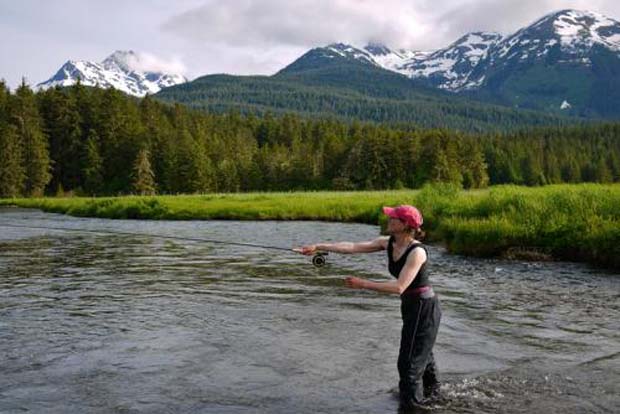Recently, lawyers for the Utah legislature attempted to persuade the American public that national forests, monuments, and other federal lands pose a danger to American values.
When it comes to annoying us, even enraging, no discipline comes close to beating lawyers because they are trained to defend their client’s position – no matter how repulsive it might be to them or us. And so it is with the lawyers defending Utah’s land grab scheme, the public lands issue that is so morally twisted, so right wing agenda masked that it is the perfect foil to commit an act of theft – steal from all the American people its claim to the rich and beautiful federal domain of its birthright.
The charlatans behind the lawyers are spending millions to rally the American public with their populist protest slogans: Take Back America, Stop Government Overreach and playing the ever popular State’s Rights card.
An Inside Look at Utah’s Land Grab Legal Scheme
By Jimmy Tobias / Contributor at Pacific Standard.
[dropcap]B[/dropcap]ack in 2012, upon passing its Transfer of Public Lands Act, the state of Utah laid down a deadline. It told the national government to relinquish ownership of most federal lands within Utah’s borders by December 31, 2014, or face consequences. It was big talk, and for a while there it seemed the state would back its words with action. When Uncle Sam inevitably ignored the deadline, for instance, Utah began laying the groundwork for a pricey lawsuit meant to snatch millions of acres of national forest and other coveted lands from the federal government’s grasp. A legal brawl was brewing.
Then, suddenly, things changed: Antonin Scalia died, and with him went the conservative Supreme Court majority that land transfer’s proponents need to succeed. Donald Trump, meanwhile, became the GOP presidential nominee, and conservative hopes of re-capturing the White House and the high court withered. Nearly four years after the land transfer act became law, nearly two years since the state’s deadline, Utah’s tough-talking lawyers and legislators have yet to sue.
Earlier this month, however, as if to signal the state’s determination not to give up on its quixotic quest, the National Review published an op-ed by two lawyers consulting with Utah on its land transfer scheme. The article is a glimpse into key arguments the state could employ if a lawsuit moves forward, and so it’s worth considering the attorneys’ assertions in detail. After all, should their perspective someday prevail in court, should it create a precedent, it will ultimately strip the American people of their stake in the public mountains, forests, and plains of the West.
The op-ed is the work of George Wentz Jr. and John W. Howard, who, incidentally, fail to disclose in the piece that they are attorneys on the Utah legislature’s payroll. Despite that unfortunate oversight, their argument is clear enough: With the righteous tone of civil rights crusaders, the lawyers say that the residents of Western states suffer unequal treatment under the law due to the bounty of federal land in the region. They make the presence of public lands sound like Jim Crow oppression.
“Over the years, America has seen steady progress on the principle that individuals enjoy equal rights under the law,” the authors begin. “But that principle is violated daily for the tens of millions of people who live in the twelve western states where most of the land is claimed by the federal government.”
From there, the article turns to a list of grievances bent on showing that federal land ownership — that is, land ownership of, for, and by the people in the form of national forests, monuments, and the like — is a threat to equal rights and self-determination. The authors resent, for instance, that federal land agencies have law enforcement jurisdiction and other “police powers” in places like Utah.

Image credit Wasatch Guide Service of Utah.
It is a county where residents can access open landscapes free of charge. It is a place where many people, young and old, liberal and conservative, earn their living or put food on their table thanks to nearby federal forests
“Just ask the citizens of San Juan County, Utah, who have had their homes raided by heavily armed Bureau of Land Management agents and have seen one of their county commissioners prosecuted and sentenced to ten days in prison and fined $96,000.00 for riding an all-terrain vehicle on a county water-line-maintenance road that had been unilaterally closed down by the feds,” they write. “A county sheriff in New York who raided homes or arrested a county commissioner would quickly be voted out of office.”
A few points here: The home raids mentioned above were meant to recover Native American artifacts that certain San Juan County residents had stolen from nearby federal land. And the county commissioner, a politician named Phil Lyman, was charged for illegally using an ATV on a closed road while participating in a provocative anti-federal lands protest. The feds weren’t making arrests on a whim.
Wentz and Howard portray land agencies and their law enforcement officers as some sort of “arbitrary power” that threatens local liberties. The fact of the matter is that at the Bureau of Land Management at least, only 200 field officers patrol all the agency’s parcels across the West. “That’s one ranger per an area larger than the state of Delaware,” according to High Country News. If it’s an arbitrary power, it’s a rather flimsy one.
The authors also maintain that abundant federal land hinders population growth in the West. After arguing that the federal domain deprives local governments of property taxes and self-determination, they write: “Imagine attracting new people to a state without the ability to determine its own future — a state dependent on the debt-burdened federal government for welfare checks to try to survive.”
Imagination, though, isn’t necessary. Six of the 10 fastest growing states in the country — Utah, Nevada, Arizona, Idaho, Colorado, and Washington — contain vast federal land holdings
Wentz, in response to this fact, points out that Utah might have a high rate of population growth but, because its population is so small to begin with, the total amount of people added to the state’s residency rolls is small compared to a place like Texas. “Right now, Utah begins the race several hundred meters behind the starting line, while 38 other states start the race at the starting line,” he writes in an email.
Robert Keiter, a University of Utah law professor who has followed the potential land transfer legal case closely, believes the argument is moot nevertheless. “More than half of the 10 fastest growing states are located in the West,” he writes. “It is ludicrous to suggest that, because there are federally owned lands here, the Western states aren’t able to grow.”
Wentz and Howard rely on this population claim anyway and thereby arrive at their central point: “Congressional seats and Electoral College votes are allocated on the basis of population according to the Census. Population is the constitutional currency in the competition among the states for political power. And western states are deprived of that currency….”
Federal lands are an experiment in democracy, and, like any democratic effort, they are messy and occasionally exasperating
This passage, though, ignores the United States Senate, which was designed to safeguard a federalist system. “The Senate in particular, is a real protector of individual state sovereignty and that has been pretty widely recognized by most scholars and researchers,” Keiter says. “I mean, Wyoming, with 600,000 residents, has the same political strength in the Senate as does California, with 33 million people.” Smaller states like Utah, Wyoming, and Rhode Island may not have as much pull in the House of Representatives or the Electoral College, but they get extra sway in Congress’ upper chamber.
What Wentz and Howard lay out in their article, it seems to me, is the rhetorical blueprint of a potential land transfer legal strategy. Wentz says this effort is not about privatizing land. It is not about a land grab. The proponents of land transfer he knows are “in favor of the public lands remaining public.” Rather, Wentz argues, the issue is about “equal rights and effective stewardship of the public lands.” And I take him at his word.
Those intentions aside, however, the National Review article doesn’t reflect the federal lands reality that I am familiar with. I’m writing this column from Missoula, Montana, located in a county where 43 percent of that land is federally owned and the population grew by 14 percent between 2000 and 2010. Some say it’s growing too fast.
This place is not suffering under the oppressive thumb of federal land agencies. Rather, it is a county where residents can access open landscapes free of charge. It is a place where many people, young and old, liberal and conservative, earn their living or put food on their table thanks to nearby federal forests. Some work on Forest Service trail crews or for private timber firms, others guide wilderness therapy trips or conduct scientific research in the field. Many of the young people here — people who grew up in the East where old-growth forests were decimated and land access restricted more than a century ago — made this place their home precisely because of the sprawling federal lands that surround the town.
Of course, as anyone who lives here can tell you, the public lands aren’t perfect. Timber harvesting has declined, mills have closed, and good union jobs have disappeared. Invasive beetle infestations have decimated pine populations, some trails don’t get enough maintenance attention and, just two weeks ago, a massive wildfire raged south of town. Federal lands are an experiment in democracy, and, like any democratic effort, they are messy and occasionally exasperating.
Land transfer, however, is not the answer. If local governments truly want to improve management on federal lands, if they want to have a voice in land use decisions, they can follow the lead of the many Montana counties that have developed local planning documents in a bid to influence federal decision making. If states want to see better fire policies, if they want to end the maintenance backlogs that plague so many public landscapes, they can push Congress to adequately fund the Forest Service and the BLM, rather than pursue misguided austerity policies. Transferring ownership of federal land to state governments (many of them run by right-wing political interests) would constitute an act of theft — it would mean depriving the American people as a whole of its claim to the rich and beautiful federal domain. Such a move would serve only to exacerbate conflict and leave behind bitter resentment — after all, no one likes being robbed of a birthright.
About the author
Jimmy Tobias / Contributor at @PacificStand. Freelance reporter covering extinction, extraction, and enviro justice.


